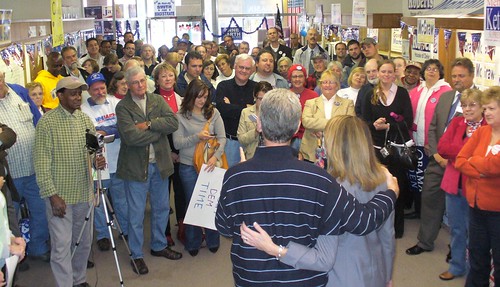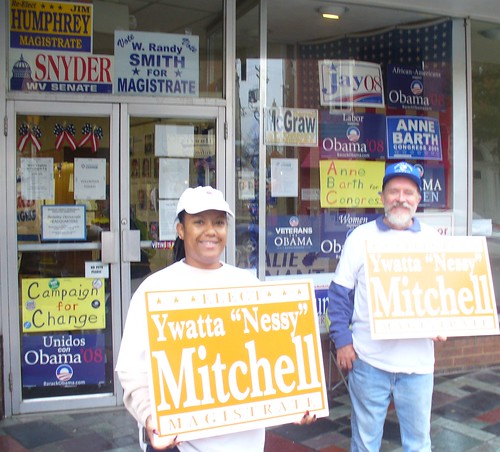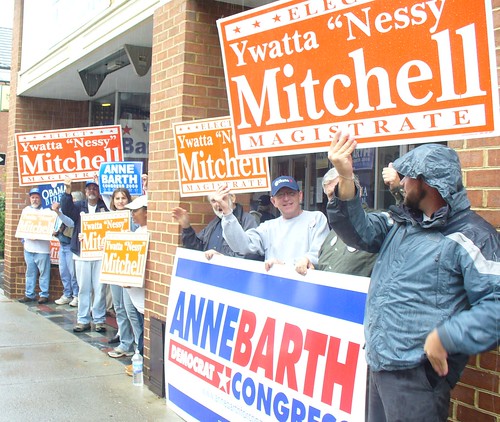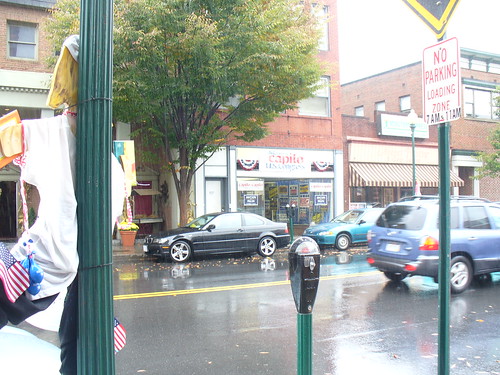There’s been a lot of movement in the last 24 hours in West Virginia. To start with, yesterday afternoon, Democratic AG Darrell McGraw announced that Gov. Joe Manchin has the authority to call for a special election to be held this year.
“Since a general election is already scheduled for Tuesday, Nov. 2, 2010, it is suggested that a special primary election be held at a time which maximizes the opportunity for all potential candidates to prepare for both the special election and the general election, and for all voters, including those in the Armed Services, to participate and have their voices heard,” McGraw wrote, according to the Charleston Daily Mail.
There’s been some confusion as to what exact format the election would take, and for now, it sounds like no one is quite sure. McGraw’s statement makes it sound like there should be a primary election held when convenient prior to Nov. 2, but that’s not made entirely clear. The Fix’s Aaron Blake says that the Manchin camp would like to have only one election, though, and have a special open primary that coincides with the general election where all candidates run in one pool (shades of HI-01). The superficial rationale, of course, would be saving money on not running two elections. But it could also help Manchin out a lot, if he’s the only Dem candidate and the Republican vote is split.
And Manchin is sounding like his candidacy is near-definite; he told Ben Smith today that he’ll announce his intentions formally on Monday but said that his candidacy is “highly likely” (which is also how he phrased it on MSNBC this morning). He also said that the only questions left at this point are “procedural,” like ensuring a smooth transition for the person who takes over as Governor. Manchin’s counsel says that there’s no clear sense from the law of when or how to hold the election, but that will be resolved in the legislative special session that Manchin will soon call.
Manchin, talking about gubernatorial succession, seems to be acting like his election to the Senate is already a done deal; is he being overconfident? Yesterday Nate Silver foresaw a close race, although that was based on West Virginia’s demographics and reddening trend without any poll data.
Since then, Rasmussen leaped into the breach, offering a snap poll as they often do. Rasmussen’s numbers — and I rarely get the chance to say this — should give Democrats a good deal of confidence. Manchin defeats his strongest possible GOP rival, Rep. Shelly Moore Capito, by a 53-39 margin, while he beats former SoS Betty Ireland 65-26. Most impressively, he has a 77/23 approval rating, which has to make him the most popular Governor in the nation.
Even before Manchin started signaling his clear intent to run today, and before Rasmussen dropped its abandon-all-hope-ye-GOPers poll, there were questions yesterday about who the Republican candidate would be, and whether there was a Plan B if Capito didn’t run. (There’s also legal uncertainty as to whether Capito could run in both the special and in her already-scheduled election to hold WV-02 at the same time, which would weigh heavily on her decision whether or not to run. And Capito’s calculations would have to factor in whether she might have a better shot at Manchin again in the regularly-scheduled 2012 election, when she’d have a longer time to ramp up a campaign and when Obama’s top-of-ticket presence might be an anchor on Manchin… and also the possibility of whether Jay Rockefeller might retire in 2014, giving her a good shot at an open seat.)
In the absence of Capito or Ireland, other names that have gotten floated include businessman John Raese, who spent a large amount of his own money en route to losing badly to Robert Byrd in 2006, former state Sen. Steve Harrison, state Sen. Mike Hall, and Bob Adams, the director of something called the League of American Voters and a losing candidate for state Treasurer in 2004.
UPDATE: Someone has slipped Reid Wilson the short list for seatwarmers that Joe Manchin is considering for appointment to the Senate for the next half a year. Some of the names are familiar, but there are a few surprises. The list is: Anne Barth (former Byrd state director, and ’08 loser in WV-02 to Capito), Gaston Caperton (the former Gov. and current College Board Pres. who previously said he wasn’t interested), Nick Casey (former state party chair, now up for a federal judgeship), Carte Goodwin (Manchin’s former general counsel), Larry Puccio (current state party chair and former Manchin CoS), and Bob Wise (9-term ex-Rep. and one-term ex-Gov., who didn’t seek re-election after a sex scandal). Bear in mind that whoever the replacement is, that person will be the vote to get unemployment benefits extended, so there’s no doubt a sense of urgency behind picking someone.














